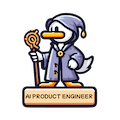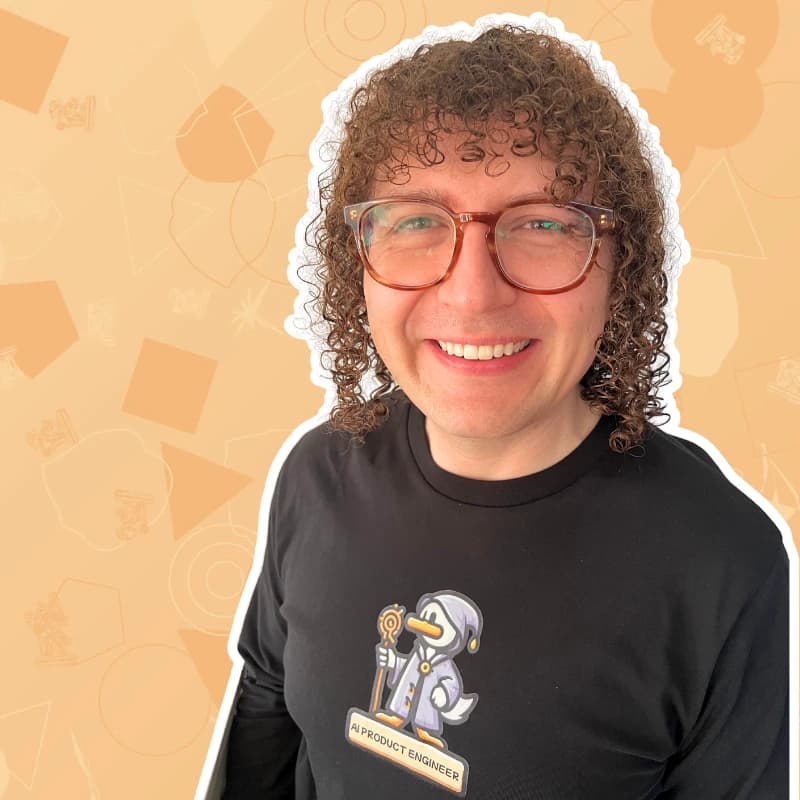Oscar Rovira from Mystic AI
In this episode of AI Product Engineer, Oscar from Mystic AI shares his journey from mechanical engineering to the data science space of machine learning. He discusses the importance of practical experience and the opportunities he found in England to focus on autonomous cars and artificial intelligence. Oscar emphasizes the accessibility of learning Python and the tools available for building AI models. He then explains how Mystic AI aims to simplify the process of putting models into production by providing an API that allows users to deploy their models in the cloud. Oscar concludes with his predictions for the future of AI and invites listeners to connect with him and explore Mystic AI.
Takeaways
- Practical experience and access to tools are crucial for learning and working in the field of machine learning and AI.
- Python is the dominant programming language in the AI and machine learning space, offering a wide range of tools and resources.
- Mystic AI aims to simplify the deployment of AI models by providing an API that allows users to put their models into production in the cloud.
- The field of AI and machine learning is rapidly evolving, with new models and technologies emerging constantly.
- It is important to start with what you already know and gradually explore new models and technologies based on your specific use case.
Episode Transcript
Introduction and Professional Background
Rod: Welcome to this episode. Today we have with us Óscar from Mystic AI, an engineer who has transitioned from mechanical engineering to the world of Machine Learning and Artificial Intelligence. We're going to talk about his journey, how he came to England from Spain, how he started his company, and how those interested in entering the world of data science and AI can begin without needing to be experts or have a doctorate. Welcome, Óscar.
Óscar: Thank you Rod, I'm delighted to be here.
Rod: Tell us a bit about your origins and how you got to where you are now.
Óscar: Thank you. As you mentioned, I'm originally from Barcelona, Spain. From a very young age, I aspired to study in the United States or England. I prepared myself from school to study in England, and I began my career there, in a city called Bath, studying mechanical and electronic engineering.
The main reason I decided to move to England was because, compared to Spain, English universities focus more on practice than theory. I always wanted to have a more practical approach and not wait years to start building real things.
From Mechanical Engineering to Artificial Intelligence
Óscar: During my degree, I had the opportunity to do a year-long "placement", working in a company before resuming my studies. I decided to focus on autonomous cars and artificial intelligence. Although my background was in mechanical and electronic engineering, I always had a great interest in AI.
I worked for a year in a company in northern England, in the autonomous car department. There, I dedicated myself to developing algorithms for detecting cars, people, and lane changes. It was at that moment when I realized that artificial intelligence was what I really wanted to do in my career.
During that summer and year of work, I immersed myself in learning Python and the fundamentals of artificial intelligence. I took online courses, including one from Udacity called "Self-Driving Car Nanodegree", which provided me with a solid foundation in the fundamental aspects of being an autonomous car engineer.
Rod: You went from mechanical engineering, which involves a lot of differential equations and MATLAB, to a completely different world. How was that intensive learning process?
Óscar: It was a very intense summer, with little rest. I had set myself the goal of mastering the fundamentals by the time I started work. I structured my learning in parallel: on one hand, I studied the mathematics and theory of AI and Machine Learning, and on the other, I developed my skills in Python.
Work Experience and Hackathon
Óscar: At work, I was initially assigned simpler tasks, but as I demonstrated my capabilities, they gave me more flexibility and responsibilities. One of the most outstanding experiences was participating in a hackathon where, in seven days, we had to build a completely autonomous car. We worked as a team with engineers from different universities and companies in China. It was a culmination of everything I had learned and a validation of the work I had been doing.
Evolution of the AI Field
Rod: About 7 years have passed since then. What has changed and what has remained the same in the world of Machine Learning and data science?
Óscar: I think we've realized that it's something very valuable for many companies in different sectors. We're now at a point where there's much more access to tools and knowledge. Anyone, regardless of their age or career, can contribute in these areas if they have the motivation and time to learn.
With the rise of models like ChatGPT, we have a kind of teacher or copilot that can teach us about any topic. This has democratized access to information and tools to create AI models.
Python and the World of AI
Rod: Python seems to be the dominant language in AI and Machine Learning. What would you recommend to someone who isn't a Python programmer but wants to enter this world?
Óscar: Python remains the ideal tool because of its ease of use and the large amount of resources available. For someone coming from another programming language, Python is usually relatively easy to adopt. However, the most important thing is to understand the fundamental concepts behind AI and Machine Learning.
If for some reason you can't learn Python, you can still contribute to the field. Many libraries and tools are available in other languages. The crucial thing is to understand the concepts and be able to apply them, regardless of the language you use.
Mystic AI and the Future of AI
Rod: Tell us about Mystic AI. How did this idea come about and how is it different from your previous work with autonomous cars?
Óscar: Mystic AI was born from the idea of creating a more efficient artificial intelligence chip. Initially, our goal was to bring this chip to market, but we realized that the most important thing for end users is ease of use and efficiency, regardless of the underlying hardware.
We focused on developing a platform that allows data engineers to put their models into production easily, without needing to be experts in software optimization. Our API allows implementing any type of model in the cloud, similar to how users interact with models like GPT-3.5 or GPT-4, but with greater flexibility and security.
Advice for AI Beginners
Rod: What do you suggest to those who are starting in the field of AI, especially if their superiors ask them to implement AI solutions in their company?
Óscar: My recommendation is:
- Start with what you already know. If you're familiar with a specific database, use it instead of switching to a new one just because it's popular.
- Use open source projects and resources like GitHub to understand how these systems work.
- Start with popular and well-documented models, like those you find on Hugging Face.
- Use tools like Langchain or LlamaIndex to create prototypes quickly.
- Once you have a working prototype, start optimizing and customizing according to your specific needs.
Predictions for 2024
Rod: As we're about to begin 2024, do you have any predictions about where the industry is heading?
Óscar: 2024 will be a year in which we'll see an even greater democratization of AI tools. People from all walks of life, from high school students to experienced professionals, will be able to create innovative products using AI.
We expect to see a boom in new open source models and companies seeking to compete with giants like OpenAI. We're also likely to see significant advances towards what we might call Artificial General Intelligence (AGI).
It will be an exciting year of exponential growth in the AI industry.
Conclusion
Rod: Thank you for your time, Óscar. Where can our listeners find you?
Óscar: You can find us at mystic.ai, I'm also on LinkedIn as Óscar Rovira, and on Twitter. If you want to contact me directly, you can send me an email at or@mystic.ai. I'll be happy to answer any questions you may have.
Rod: Thank you very much for your time, Óscar. We'll be keeping an eye on Mystic AI and everything it can offer in this upcoming 2024.



